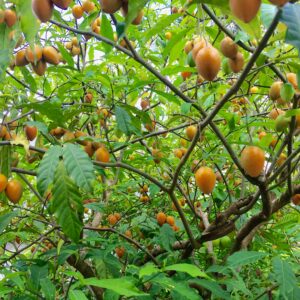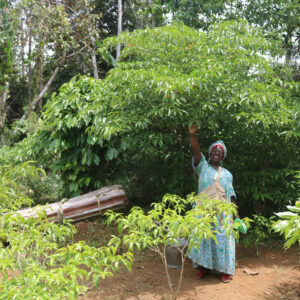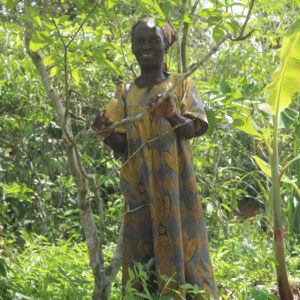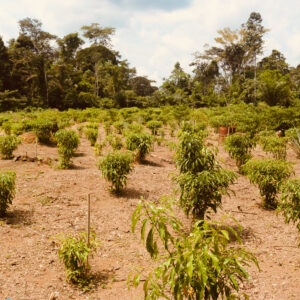Despite the public declaration by the late President of the Gabonese Republic, El Hadj Omar Bongo Ondimba, in a Cabinet meeting on July 6, 2000, classifying iboga as “National Cultural Heritage” and a “Strategic Reserve” (“to be protected from illicit exploitation”), no legal texts have been amended to reflect this, leaving the door open to various ongoing trafficking and biopiracy activities. It was only recently, in February 2019, that the former Minister of Water and Forests and Environment, Guy Bertrand Mapangou, signed a decree (proposed by BOTF) completely banning the export of iboga pending the establishment of the Nagoya Protocol concerning the exploitation of Non-Timber Forest Products.
Iboga is an endemic plant of the equatorial forests of Central Africa, flourishing particularly in Gabon. However, it remains extremely challenging to cultivate outside this region due to difficulties in sourcing viable seeds and a lack of knowledge about the specific natural conditions required for its growth while preserving the botanical and chemical characteristics of each variety.
Due to global overconsumption of iboga, poaching of animals that naturally plant the resource, deforestation, climate change, and the abandonment of traditional village life, iboga is becoming increasingly scarce in Gabon. It could disappear from Gabon’s public domain in a few years if no conservation project is implemented.
Traditionalist communities, especially those living in urban areas (where over 80% of the Gabonese population resides), are finding it increasingly difficult to access high-quality iboga at a reasonable price. This poses serious public health problems (a resurgence of the sale of iboga mixed with various non-edible products, an increase in fatal accidents due to the consumption of “fake iboga”), as well as challenges in preserving the Bwiti tradition as a whole (iboga scarcity leading to increased consumption of alcohol and other psychoactive substances).
Gabon’s natural iboga reserves are mainly sold for export worldwide through complex informal networks, sometimes linked to criminal enterprises (cross-border poaching), without fair revenue sharing from this highly profitable trade at the end of the chain, without quality control, or traceability.
Several international laboratories aim to profit from iboga (primarily sourced from Gabon) and its chemical derivatives. They are developing synthetic derivatives of ibogaine extracted from this resource and filing patents related to its clinical use, disregarding the principles advocated by the Nagoya Protocol, of which Gabon is the world’s first signatory.
Scientists and international therapists do not fully integrate the millennia-old knowledge accumulated by Gabonese traditional communities regarding their use of iboga, and Gabon does not benefit from discoveries made by international research concerning therapeutic prospects and clinical applications.
Half of the world’s forests have been destroyed during the 20th century.
Due to the often uncontrolled exploitation of raw materials such as wood, diamonds, gold, and rare metals, as well as industrial agriculture and livestock farming, two-thirds of the forests in the Congo Basin could be lost by 2040 if nothing is done.
The end of the oil rent era in Gabon and the lack of economic diversity place an unprecedented burden on Gabon’s forest resources.
Forest operators in Gabon all too rarely fulfill their legal obligations to pay taxes based on the volume of wood extracted to benefit the village communities bordering the concessions, as stipulated in Article 251 of the 16/2001 Forest Code of the Gabonese Republic (“contractual specifications” are seldom existent or respected).
Increasing desertification of community forests, insufficient means for awareness and controls regarding their proper management, impoverishment, and aging of village populations, as well as corruption, expose the entire Gabonese fauna and flora to increasingly irreversibly destructive illicit exploitation.
Poaching and poor forest ecosystem management drive animals, particularly elephants, massacred for their ivory and no longer able to find food in the forest, to seek sustenance from subsistence village plantations, creating a complex human-wildlife conflict to resolve.
Village populations lack technical and financial means, as well as knowledge and tools for the economic valorization of their natural/cultural heritage to engage in sustainable agro-forestry projects that could provide them with food, cosmetics, and therapeutic self-sufficiency.





